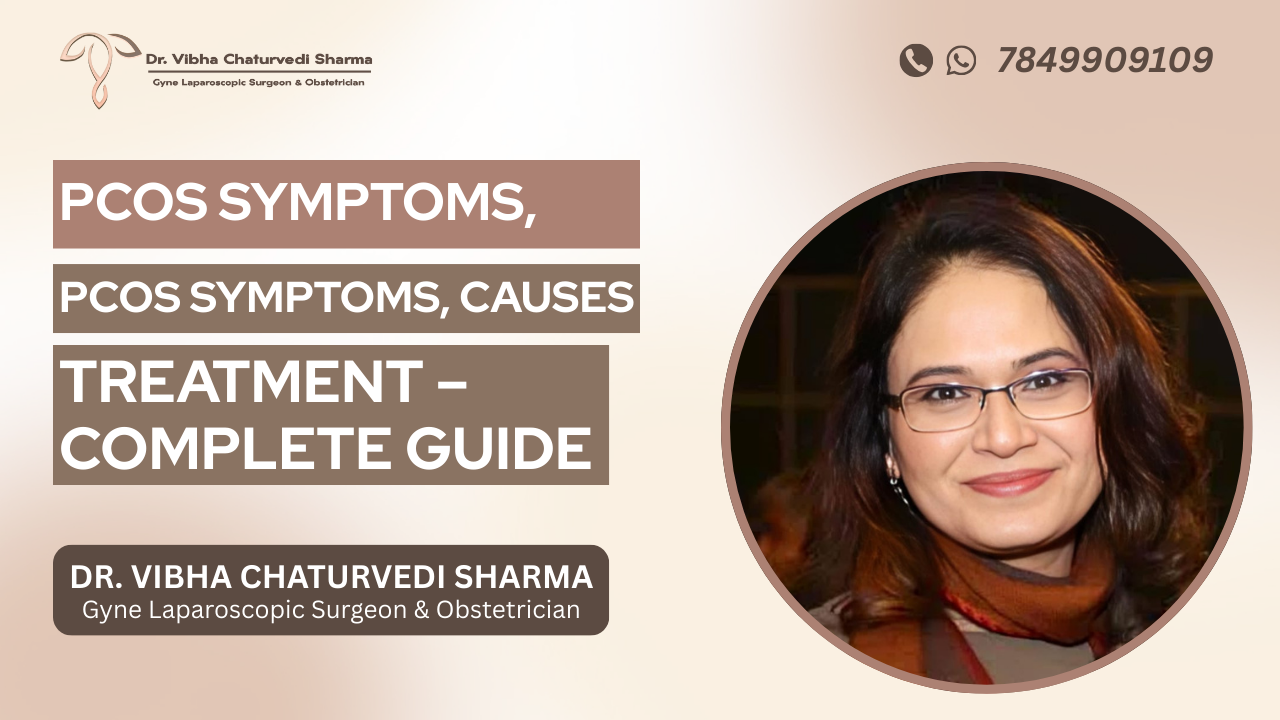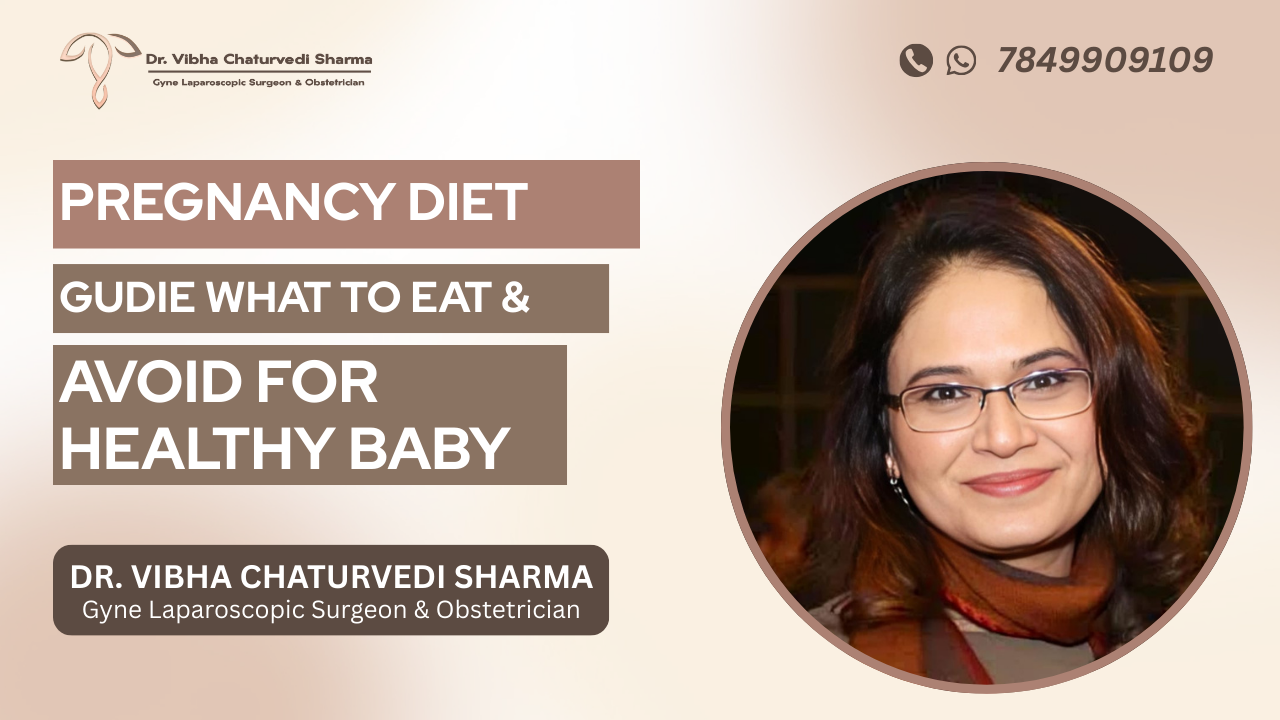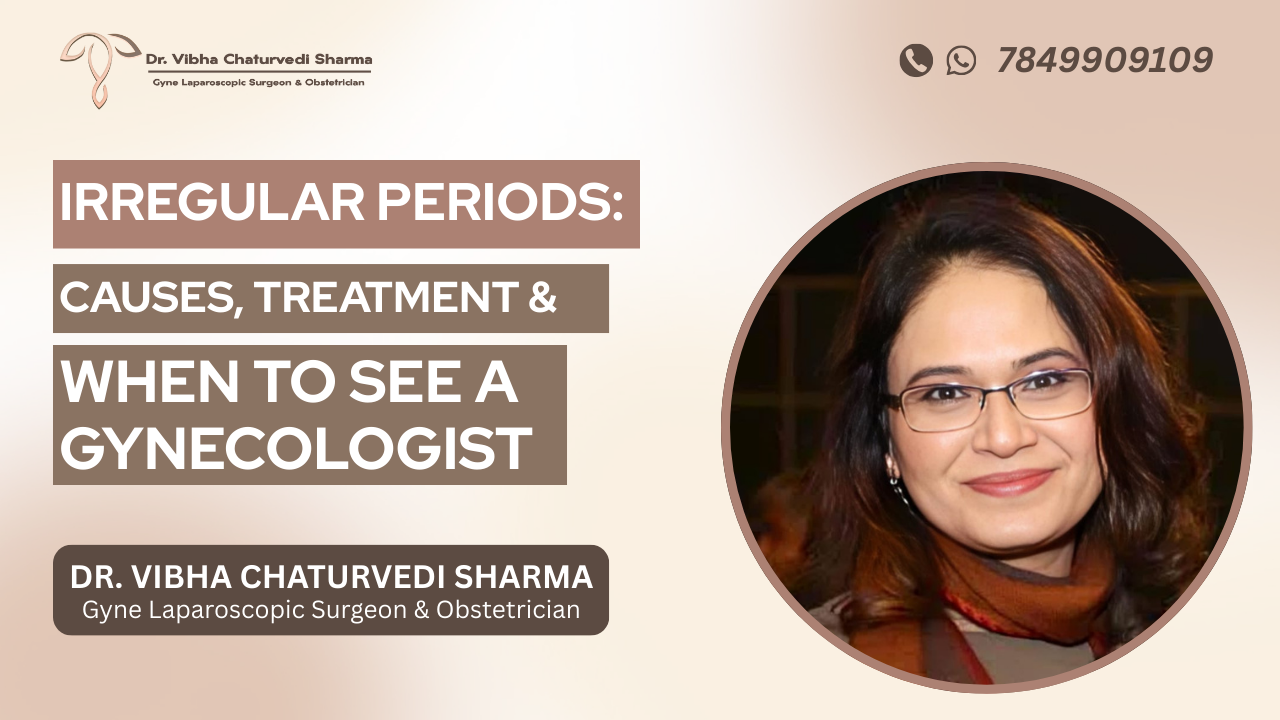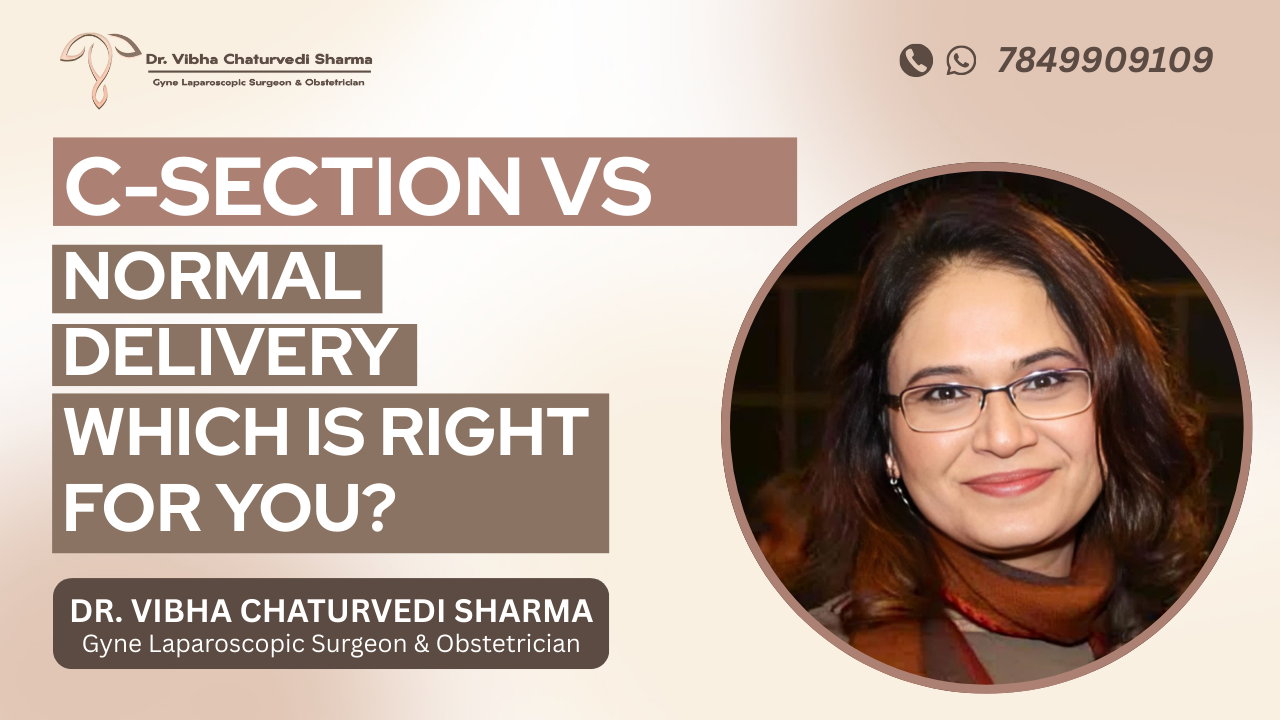Introduction
The desire to become a mother is a deeply personal journey for many women. While for some, this journey is a smooth and quick experience, for others, it may involve navigating complex fertility challenges. Whether you’re just starting your family planning or have been struggling with infertility, understanding the key factors that influence conception can significantly improve your chances of a healthy pregnancy.
Dr. Vibha Chaturvedi, with over 20 years of experience in gynecology and women’s health, offers expert guidance on how to enhance fertility, make informed decisions, and embark on the path to motherhood with confidence.
Understanding Your Fertility
1. Age and Fertility
- A woman’s fertility naturally declines with age, particularly after the age of 35.
- It’s essential to understand how age impacts egg quality and ovulation.
- The earlier you begin planning, the better your chances of conceiving naturally.
2. Menstrual Cycle
- Regular menstrual cycles are a good indicator of reproductive health.
- Tracking your cycle can help identify the best times for conception.
- Irregular periods may signal underlying conditions that require medical attention.
3. Ovulation
- Ovulation is the process in which an egg is released from the ovaries and becomes available for fertilization.
- You are most fertile around ovulation, usually occurring around the middle of your menstrual cycle.
- Tracking ovulation through methods like basal body temperature, ovulation predictor kits, or cervical mucus monitoring can help pinpoint your most fertile days.
Lifestyle Factors That Affect Fertility
1. Healthy Diet and Nutrition
- A balanced diet rich in vitamins, minerals, and antioxidants is crucial for reproductive health.
- Include plenty of fruits, vegetables, lean proteins, and whole grains.
- Maintain a healthy weight, as both underweight and overweight conditions can affect ovulation.
2. Exercise and Stress Management
- Regular exercise improves overall health and fertility but avoid excessive exercise, which can interfere with ovulation.
- Managing stress is essential; chronic stress can disrupt hormonal balance and impact your ability to conceive.
3. Smoking, Alcohol, and Caffeine
- Smoking can reduce fertility by affecting egg quality and blocking fallopian tubes.
- Excessive alcohol and caffeine consumption may reduce fertility, so moderation is key.
When to Seek Professional Help
1. How Long Should You Try to Conceive on Your Own?
- For women under 35, it’s recommended to try for at least 12 months before seeking medical assistance.
- For women over 35, you should seek help after 6 months of trying.
- If you’ve experienced a miscarriage or have a history of pelvic infections, early consultation with a fertility expert is advisable.
2. Common Fertility Issues
- Ovulation Disorders: Conditions like PCOS (Polycystic Ovary Syndrome) or thyroid imbalances can disrupt ovulation.
- Blocked Fallopian Tubes: These can prevent sperm from reaching the egg or cause complications during fertilization.
- Male Factor Infertility: Male infertility can also play a significant role in difficulty conceiving.
- Endometriosis: This condition can hinder fertility by affecting the ovaries, fallopian tubes, and uterus.
3. Diagnostic Tests
- Blood Tests: To check hormone levels such as progesterone, estrogen, and thyroid hormones.
- Ultrasound: To assess the health of the ovaries, uterus, and fallopian tubes.
- Hysterosalpingography (HSG): An X-ray test that can help evaluate the patency of your fallopian tubes.
Fertility Treatment Options
1. Ovulation Induction
- For women who aren’t ovulating regularly, medications like Clomid or letrozole can help stimulate ovulation.
2. Intrauterine Insemination (IUI)
- This involves placing sperm directly into the uterus to increase the chances of sperm reaching the egg. It’s often combined with fertility medications.
3. In Vitro Fertilization (IVF)
- IVF involves stimulating the ovaries to produce multiple eggs, which are then retrieved, fertilized in the lab, and the embryo is implanted in the uterus.
- IVF is often recommended for cases of blocked fallopian tubes, severe male infertility, or unexplained infertility.
4. Egg and Sperm Donation
- If there are issues with egg or sperm quality, donation can be an option for achieving pregnancy.
5. Surrogacy
- If you’re unable to carry a pregnancy to term due to health issues, surrogacy is an option. A surrogate mother carries the child, and the intended parents are involved in the child’s upbringing.
Emotional Well-Being and Support
The journey to becoming a mother can be emotionally challenging, especially if fertility treatments are involved. It’s crucial to seek support from loved ones, fertility counselors, or support groups.
- Stay positive: Fertility issues are common, and with the right help, many women conceive successfully.
- Partner Support: Both partners should be emotionally involved and support each other through this journey.
- Counseling: If you feel overwhelmed or anxious, speaking with a fertility counselor can help you navigate the emotional aspects of this process.
Conclusion
Becoming a mother is one of the most rewarding experiences, but it can take time, patience, and a solid understanding of your fertility. By maintaining a healthy lifestyle, understanding your menstrual cycle, seeking timely medical help, and exploring fertility treatment options, you can improve your chances of achieving a healthy pregnancy.
Dr. Vibha Chaturvedi is here to guide you every step of the way. Whether you need fertility advice, diagnostic tests, or advanced treatment options, Dr. Chaturvedi’s expertise ensures you receive the best care for your journey to motherhood.
Contact Information:
Phone: 78499 09109
Location: SURYA HOSPITALS C -8, B-7, Sawai Ram Singh Rd, opposite SMS HOSPITAL, Jaipur





